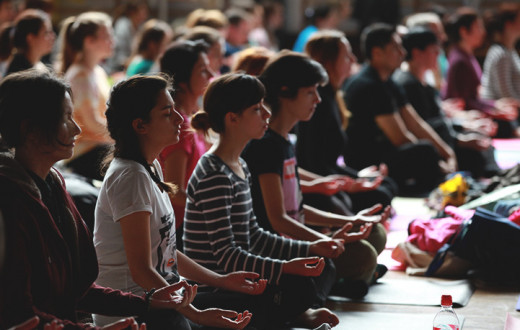By Elizabeth Herman┃Posted: April 9, 2019
Last year there were 97 incidents of school shootings in this country, up from 44 incidents in the previous year. Beyond the initial shock of hearing about yet another shooting, we may ask what we can do to make sure the rates of youth violence come down. Many of us recognize the need to effectively address this horrible trend.
Targeting the root causes of youth violence, Martin Blank gave a talk at Grad Ben Talks, an afternoon of TED Talk-style presentations by Penn (University of Pennsylvania) Arts and Sciences graduate students representing the Humanities, Social Sciences, Natural Sciences, and Professional Master’s programs.
His talk, entitled “Water the Fruit Trees: The Promise of Positive Psychology in the Face of Youth Violence” is in the video of his presentation below. It will give you a helpful overview of various programs designed to decrease violent, destructive behaviors in young people.
Classes and techniques
Martin tells the story of teaching a class that included mindful breathing. Some of the students had lost their parents, and some had drug problems. One of his students, Juan, initially questioned the need for the program, saying “I already know how to breathe,” but later experienced a positive transformation.
These breathing techniques stimulate the vagus nerve that runs up and down the back of your spine and turns off the flight or fight response. Martin describes it as “a volume knob to your emotions.”
While security systems and other protective measures are important in schools, Martin says, they don’t address the root cause of the problem. This talk advocates adding positive practices. Martin’s aim is not only to eliminate violence, but also to replace it with strategies for dealing with problems in peaceful, healthy, and harmonious ways.
Research studies on the impact of peace programs
Several sources offer methods and techniques for youth to find better ways than violence to solve problems. Martin advocates using the breath and relaxing meditations, techniques that are simple and easy to learn quickly, and last a lifetime. For instance, he mentions that a 2013 UCLA study of the Youth Empowerment Seminar (YES) showed that adolescents brought down their levels of impulsivity after participation and 4 weeks of practice. Another example is the Quiet Time meditation program in San Francisco public schools, which resulted in decreased incidences of suspensions from school, a reduction of 86% over three years of meditating with students daily.
Furthermore, a study in 2017 of 81 social-emotional learning programs showed, even 18 years later, decreased incidences of violence, arrests and clinical disorders for youth who had participated in the programs. It also showed improved relationships for the study’s program participants.
A vision for peaceful environments
Martin suggests that we place our attention on what we can add and grow to create a harmonious world, not so much on what we have to take away and stop. For instance, Juan came to Martin later with a success story. He talked about using his new-found skills to remove himself from a potentially violent street knife fight by overcoming his reaction to the others’ provocations.
When young people like Juan realize they have new abilities, they can create a more peaceful world just by thinking differently about themselves. “We do more than just prevent violence. We create environments of peace, love, self-transcendence, and connection,” states Martin.
As Martin says in his close to the talk, “When we water the strengths in our children they bloom, and they themselves become the protectors of peace.”
To find out more about YES for Schools programs or the Youth Empowerment Seminar, click here.
By Elizabeth Herman - PhD in English, with concentrations in Rhetoric and Composition, and Literature, she offers writing support to clients, teaches locally, lives in Boone, NC, and volunteers for a better world.



















